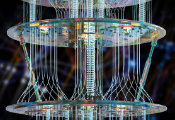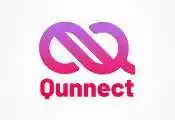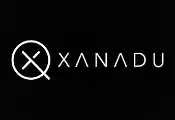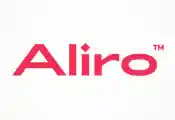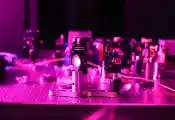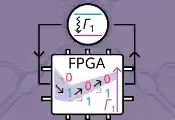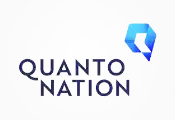Quantum Machines Launches QUAlibrate, an Open-Source Framework That Cuts Quantum Computer Calibration From Hours to Minutes
TEL AVIV, Israel, May 19 2025 -- Quantum Machines, the leading provider of advanced hybrid quantum-classical control solutions, announced today the release of QUAlibrate, an open-source framework for calibrating quantum computers. The framework dramatically shortens calibration times and provides a comprehensive solution for creating, executing, and sharing calibration protocols across different quantum computing platforms. By creating an open ecosystem, QUAlibrate enables researchers and companies worldwide to build upon each other's advances, accelerating the path to practical quantum computers.
"QUAlibrate has been transformative for our company," said John Martinis, CTO and co-founder of Qolab. "Its automated calibration capabilities now complete full calibrations in less than 10 minutes – tasks that otherwise would demand up to two hours of manual work. This efficiency boost frees up our team to focus on accelerating our QPU development."
Calibration has emerged as one of the most critical bottlenecks in scaling quantum computers. To properly initialize and maintain a quantum computer's performance, calibration must be performed not just once, but frequently during operation to compensate for system drift. As quantum systems grow in size, the calibration challenge becomes exponentially more complex. For instance, calibrating a 100-qubit superconducting quantum computer from scratch can take up to two days, and even recalibrating an already-calibrated system can take an hour or more. This becomes impractical when scaling to future systems with hundreds of thousands of qubits.
"We care both about how long it takes to calibrate and about how good the calibration is, two things that sometimes collide, and this impacts the performance of the quantum computer as a whole," said Dr. Yonatan Cohen, co-founder and CTO of Quantum Machines. "We built an open-source solution because we believe this is a challenge the community can solve together. Researchers in both academia and industry continuously develop new calibration algorithms and protocols. One day, a team in Boston might develop a protocol that increases quantum operation fidelity, the next day a European company might create a method to speed up calibrations. The path to solving this fundamental challenge lies in a collaborative approach where teams can instantly leverage each other's advances and build on them."
To address this fundamental challenge, Quantum Machines has developed QUAlibrate, an open-source calibration framework that transforms quantum calibration from a collection of isolated scripts into a modular, collaborative system. QUAlibrate enables researchers and quantum engineers to create reusable calibration components, combine them into complex workflows, and execute calibrations through an intuitive interface. The platform abstracts away hardware complexities, allowing teams to focus on quantum system logic rather than low-level details.
In a recent demonstration at the Israeli Quantum Computing Center (IQCC), QUAlibrate completed a multi-qubit calibration of superconducting qubits in just 140 seconds. The result demonstrates the system's speed and efficiency in real-world conditions.
QUAlibrate's open-source nature and modular architecture mean that when researchers develop new calibration protocols, these innovations can be immediately shared, validated, and built upon by the broader quantum computing community. Companies can also develop proprietary solutions on top of QUAlibrate that leverage advanced approaches like quantum system simulation and deep learning algorithms. This creates an ecosystem where fundamental calibration advances can be shared openly and enables specialized tools that push the boundaries of performance.
"It was fantastic to see QUAlibrate rapidly perform a complex, full tune-up on the Architect system, OQC's partner system with OINS and Quantum Machines," said Simon Philips, CTO of Oxford Quantum Circuits (OQC). "The results clearly demonstrated the power and efficiency of QUAlibrate's automated calibration approach, as showcased by Quantum Machines."
"At Quantum Elements, we see QUAlibrate as a meaningful step toward a more open and empowered quantum ecosystem," said Izhar Medalsy, co-founder and CEO of Quantum Elements. "Calibration has long been a hidden bottleneck, often locked behind proprietary tools and inaccessible workflows. By making it open source, Quantum Machines is helping turn calibration into a shared foundation the entire field can build on. We believe this kind of openness not only accelerates progress — it also gives scientists the clarity and control they need to push quantum computing forward, together."
"QUAlibrate has laid a vital groundwork for fast, reliable and efficient calibration on our QPU while we continue to scale up the size, connectivity and fidelity," said David T. Lee, Research Scientist at Academia Sinica. "It's definitely a game changer."
Along with the framework, Quantum Machines is releasing its first calibration graph for superconducting quantum computers, providing a complete calibration solution that can be immediately deployed and customized. The graph leverages QUAlibrate's parallel calibration capabilities to dramatically reduce calibration times. Looking ahead, Quantum Machines and NVIDIA are developing software libraries that will integrate QUAlibrate with accelerators like the NVIDIA DGX Quantum, enabling even faster calibration times and higher fidelity calibrations using machine learning models.



